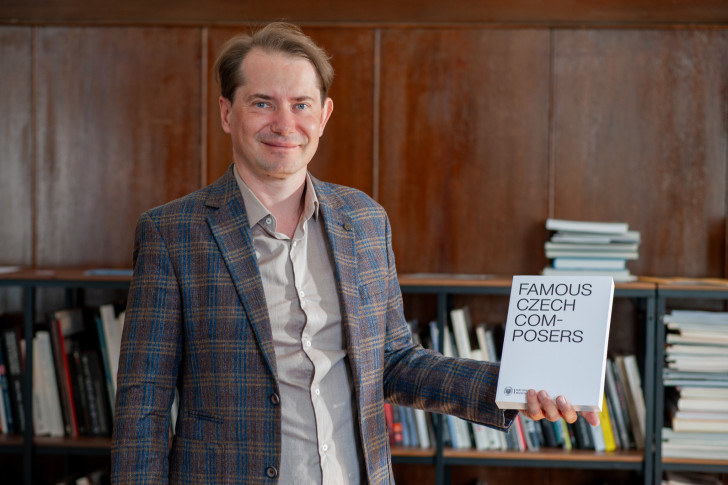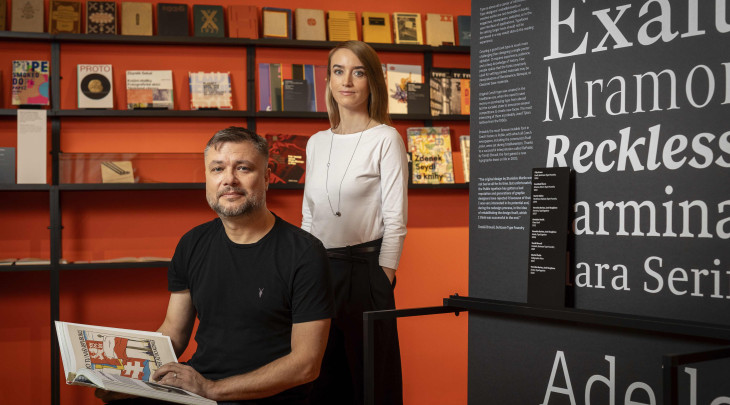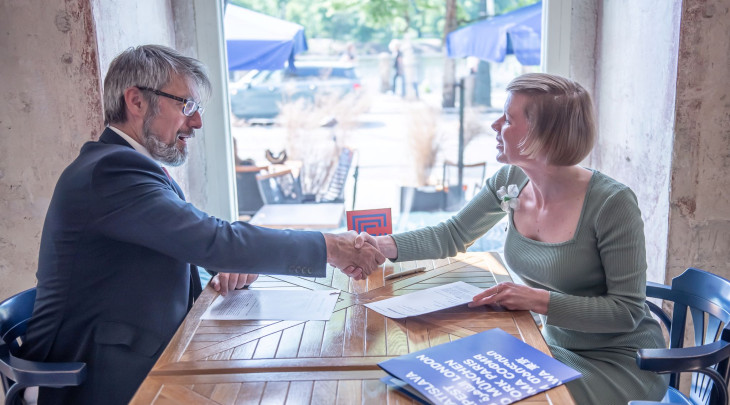Interview with the General Director of the Ukrainian National Philharmonic
- 25. 09. 2024
- News
- 3 minute read

The Czech Centre Kiev is one of the few cultural institutes operating in Ukraine during the war. We are all the more pleased that in these conditions it is possible to hear Czech music played by local ensembles. As it is currently impossible to send Czech performers to Ukraine, we managed to invite the General Director of the Ukrainian National Philharmonic, Mr. Shved Mykhail, to the international music festival Dvořákova Praha. He found time in his busy schedule to answer a few questions for us.
Have you ever been to Czechia?
I have been to Czechia only once, and that was on a tourist trip. At that time, I did not have the opportunity to get acquainted with the musical life of this beautiful country.
Do you think there is such a thing as "Czech music"? Could you describe it?
Each national musical culture has its own unique "character". Czech music is undoubtedly firmly rooted in Western European musical culture and has given the world artists of the highest caliber, including the names of Bedřich Smetana and Antonín Dvořák.
Which Czech composer would you like to include in the repertoire of the National Philharmonic of Ukraine?
Last season, for the first time in Ukraine (at least in the modern period) we performed the entire cycle of symphonic poems "Má vlast" by Bedrich Smetana. Soon, we will perform Antonín Dvořák’s Ninth Symphony. At the Kyiv Baroque Fest international festival in November, which is held under the patronage of the Philharmonic, we will be performing Czech Baroque and Classical music, including works by Josef Mysliveček.
How do you perceive the festival "Dvořák's Prague"?
The "Dvořákova Praha" festival is an example of a significant festival, filled with outstanding projects, orchestras, and soloists of the highest level over three weeks. I am definitely looking forward to getting to know this festival in more depth, as today the experience of such major projects is significant for us.
How does the National Philharmonic Orchestra operate under the current wartime conditions?
The National Philharmonic is now fully adapted to the external conditions dictated by the war. Due to Russian attacks on our energy infrastructure, electricity is often cut off, so we have acquired generators, and we maintain an uninterrupted power supply cycle that allows us to carry out rehearsals and concerts fully.
On the -1 floor, we have a simple equipped shelter that provides safety for our artists, staff, and the audience during air raid alerts. By the way, our shelter is our chamber hall, we joke that it is the most beautiful shelter in Kyiv.
Foreign artists are surprised and touched when everyone acts in a coordinated and friendly manner during the alerts and supports each other. It often happens that the artists continue performing during the concert even in the shelter, or they simply interact with the audience, sometimes playing pieces from their repertoire or improvising. This brings us all closer together. We are also aware that the war causes many injuries, which is why we have actively implemented an accessibility strategy, for example, by installing ramps. We also understand the importance of music for the mental health of our audience, so we are actively working in this area. The looks in the eyes of our audience after concerts tell us a lot and inspire us to keep going.
Interview by Anastasiia Artemyak.
You could be interested in
PF 2026
Thank you for your support and goodwill over the past year. Czech Centres wish you peaceful and joyful Christmas...
Interview with the authors of the Identity exhibition – the story of Czech graphic design
The exhibition on Czech graphic design, prepared by Filip Blažek and Linda Kudrnovská, is part of the multi-format...
Memorandum about the cooperation between the Czech Centre and the Aspen Institute Central Europe
On Monday the 26th of May, Jitka Pánek Jurková and Jakub Landovský signed a memorandum regarding the cooperation...

